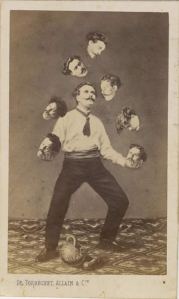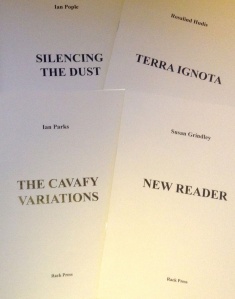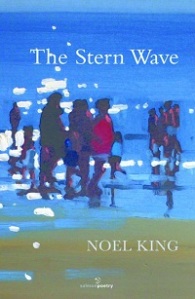Cocktails from the Ceiling, Aoife Mannix, tall-lighthouse, £8
reviewed by Jim Murdoch
In a 2012 interview Aoife talks about what poetry is to her:
Poetry for me is somewhere between music and prose. It’s a way of expressing how you experience the world. It can be both intensely personal and intensely political. I think in contemporary society people still turn to poetry to mark the most significant occasions in life such as weddings and funerals. Poetry is a compact and powerful means of revealing our inner most thoughts and feelings.
In Cocktails from the Ceiling we see some of both. The political appears in pieces like ‘The Memory of Water’ talking about the Troubles:
They say water remembers
no matter how diluted, a drop
of blood dissolving in a glass of whisky.
or ‘The Eye of the Needle’, dedicated to Pussy Riot:
I bet when Jesus went into the temple
and started knocking over stalls,
there were those who said this is just
some punk from Bethlehem pulling a PR stunt,
The personal is in poems like ‘Singing’:
You always knew how to name things,
even death, that tune that keeps on
playing in the background.
and ‘Message In A Bottle’:
The nurse said they can still hear you even
from a great distance, even when they are
floating in air and the body is empty.
Someone’s died. Someone who spent time in palliative care. Her Gran, I suspect, who used to serve her “egg sandwiches/ with white wine” and told her “stories of rebellion and theatrical drama”. Hard to be sure but loss and grief hover over this collection. Aoife ends the poem ‘Map Reading’ with the line “time has a very poor sense of direction” and in ‘Going Back’ she talks of a “landscape … buried inside us”. This collection feels like a memoir, whether it is autobiographical or not. I imagine when Aoife leafs through this book it may feel like a map of her life: playing in the church on rainy Sunday afternoons, visiting Dublin, being grilled by a security guard at Stansted, “[t]he clouds over Waterloo Bridge”, sitting in the hospice, a trip to Glasgow, “on the road to God knows where”.
Organising any collection is difficult, trying to plan a route through poems written years apart. I’m sure the order of this collection makes perfect sense to Aoife. I can see there’s a story being told here but I struggled with it and it took me weeks to produce this review. The poems aren’t hard. There’s the odd overtly ‘poetic’ bit—”ghosts/ of butterflies newly born”—which some will scratch their heads at but most of the poetry here’s accessible and personable and certainly anyone who’s lost someone—be it a baby or a grandparent—will be touched by many of these pieces. Little humour here though; it’s not that kind of book. No idea what the title’s all about. It’s a line from a poem but not the one I would’ve picked.
Jim Murdoch
http://jimmurdoch.co.uk/









